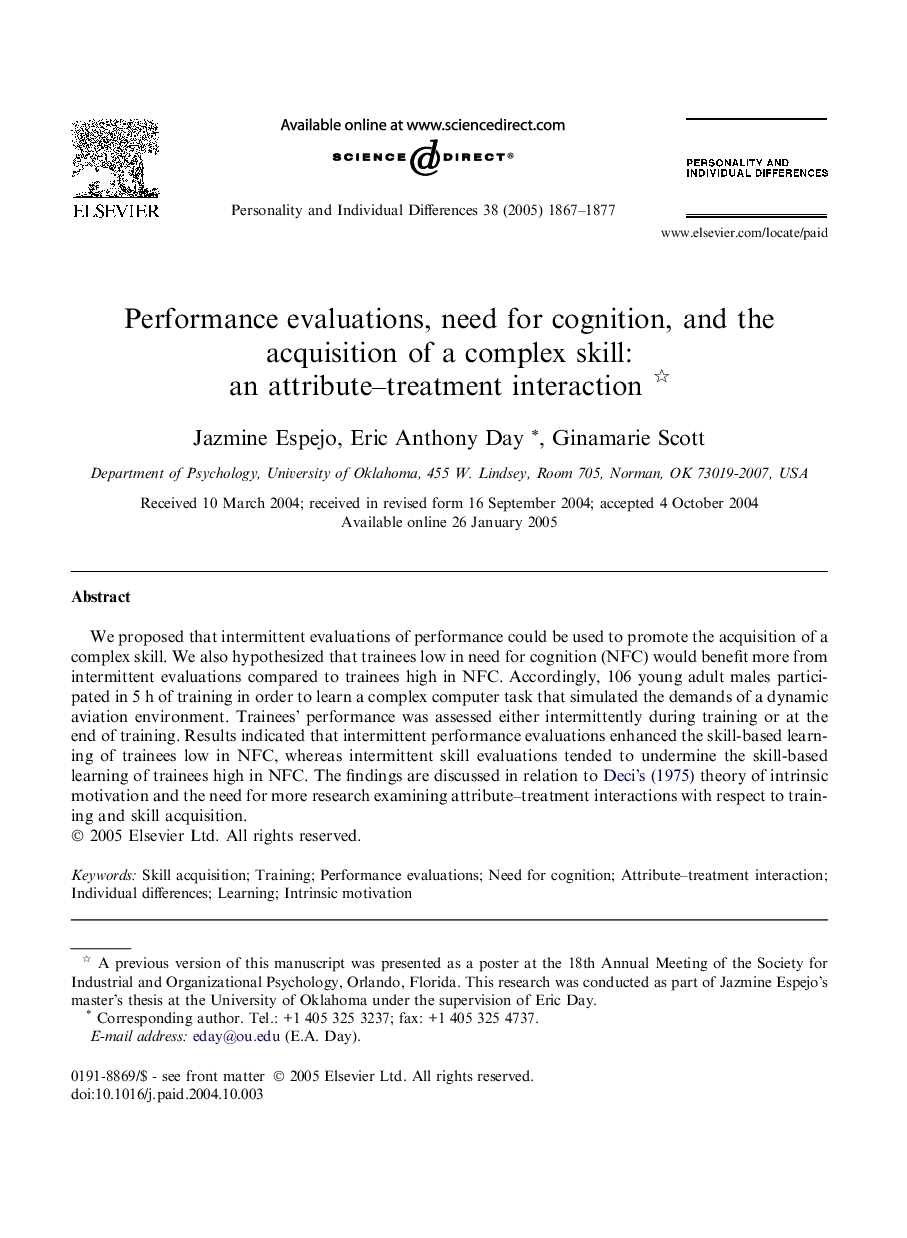| Article ID | Journal | Published Year | Pages | File Type |
|---|---|---|---|---|
| 10440667 | Personality and Individual Differences | 2005 | 11 Pages |
Abstract
We proposed that intermittent evaluations of performance could be used to promote the acquisition of a complex skill. We also hypothesized that trainees low in need for cognition (NFC) would benefit more from intermittent evaluations compared to trainees high in NFC. Accordingly, 106 young adult males participated in 5Â h of training in order to learn a complex computer task that simulated the demands of a dynamic aviation environment. Trainees' performance was assessed either intermittently during training or at the end of training. Results indicated that intermittent performance evaluations enhanced the skill-based learning of trainees low in NFC, whereas intermittent skill evaluations tended to undermine the skill-based learning of trainees high in NFC. The findings are discussed in relation to Deci's (1975) theory of intrinsic motivation and the need for more research examining attribute-treatment interactions with respect to training and skill acquisition.
Keywords
Related Topics
Life Sciences
Neuroscience
Behavioral Neuroscience
Authors
Jazmine Espejo, Eric Anthony Day, Ginamarie Scott,
